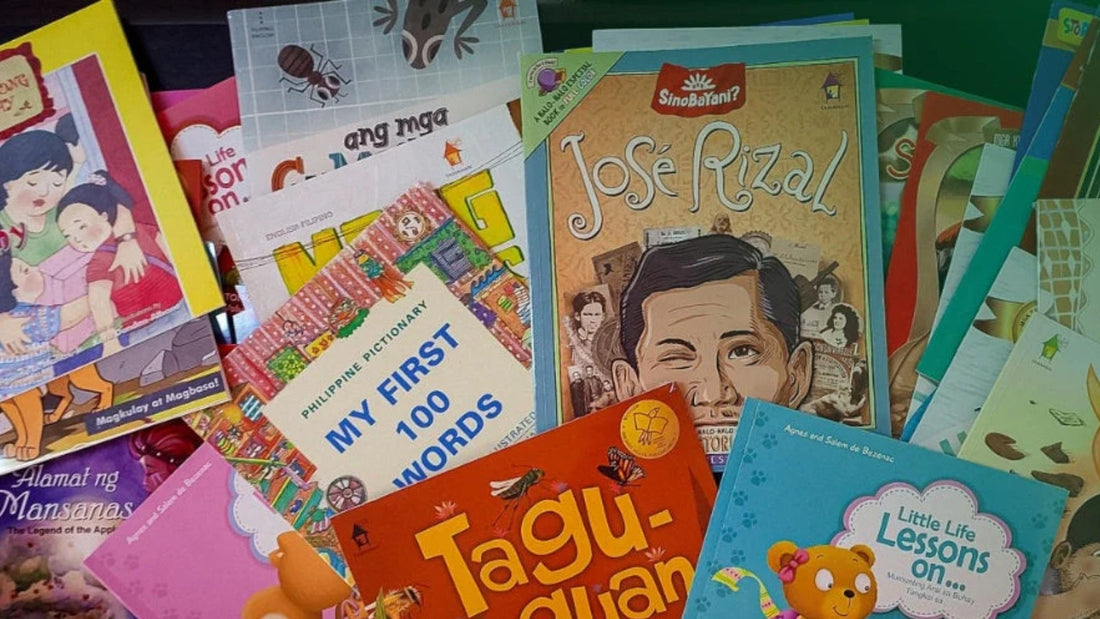
Community-Led Literacy: How Rural Students Shape Gabay Kalinga's Book Caravan
Building Knowledge Through Cultural Connection
In the remote communities of Rizal, Palawan, students create thriving reading spaces with materials that reflect their cultural identities and aspirations. Gabay Kalinga Foundation's Book Caravan, designed in partnership with local teachers and parents, brings Filipino-language reading materials to areas where educational resources remain limited.
"What started as a modest literacy initiative in 2023 has evolved into a community-driven movement for educational empowerment," reflects Christian Eyde Moeller, Chairman of Gabay Kalinga.
"Students don't just receive books—they actively transform school spaces into vibrant reading environments that reflect local culture and knowledge."
The Book Caravan reaches 1,830 students across 17 public elementary schools in 2024, creating meaningful literacy experiences that build on existing community storytelling traditions. Rather than positioning reading as an external value, this initiative connects written materials with the rich oral traditions that already exist within communities.
Student Leadership Transforms Reading Spaces
At Culasian Elementary School, sixth-grade students organize weekly reading circles for younger children, creating continuity between school-based learning and community knowledge. Teachers report that these student-led sessions strengthen both academic skills and cultural connections.
"The program works because it builds on what communities already value—the sharing of knowledge across generations," says Maria Aguilar, a teacher at Campong Ulay Elementary School. "When books arrive in Filipino language, students immediately connect them to stories they've heard from parents and grandparents."
This approach differs significantly from traditional literacy programs by centering student leadership and cultural context. Reading materials featuring Filipino characters and settings enable students to see themselves represented in literature, creating stronger engagement with reading.
Community Partnerships Create Sustainable Impact
The success of the Book Caravan demonstrates the power of collaborative action across geographic boundaries. Filipino doctors practicing both locally and internationally contribute culturally relevant reading materials through ongoing partnerships. Contributors include Dr. Melissa Bobadilla (Chicago, USA), Dr. Irene Baluyut Larkin (USA), Dr. Maria Margarita Lat-Luna (Philippine General Hospital), Dr. Chittina de Ocampo Santiago (Quezon City), Dr. Maribeth Rosales Manguera, and Dr. Esther R V Ganzon (Asian Hospital and Medical Center).
"By partnering with Bookmark The Filipino Bookstore through Dr. Manolet Delfin, we ensure that reading materials reflect authentic Filipino experiences," Moeller explains. "This cultural relevance transforms how students engage with reading, connecting literacy to their lived experiences."
These partnerships now extend beyond book donations to include teacher training and parent engagement sessions, creating comprehensive support for community literacy efforts. Local parent volunteers lead family reading workshops, passing traditional storytelling methods alongside written literacy skills.
Responding to Educational Challenges
The Book Caravan addresses significant educational barriers in remote areas of Palawan, where the geographic isolation creates challenges for consistent access to learning resources. Rather than viewing these communities through a deficit lens, Gabay Kalinga Foundation recognizes the existing strengths upon which literacy initiatives can build.
"Education is a vital component of overall community well-being," notes Dr. Maria Angela M. Villa, former Lionheart Farms' company physician who helped initiate the program. "When students strengthen reading skills through culturally relevant materials, they build foundations for health literacy, environmental understanding, and economic participation."
Recent assessments show that participating schools report increased reading engagement, with students spending 25% more time with books compared to pre-program measurements. Teachers attribute this improvement to the cultural relevance of materials and the community ownership of reading activities.
Expanding Impact Through Digital Integration
Building on the program's success, community leaders recently introduced digital storytelling components that blend traditional narratives with technological skills. Students now document local stories shared by elders, creating digital archives that preserve cultural knowledge while building modern literacy skills.
"As technology becomes increasingly important, these students demonstrate how digital tools can strengthen rather than replace cultural traditions," Moeller observes. "By recording elders' stories and creating multimedia presentations, they bridge generations while developing essential skills."
Schools participating in this digital extension report increased parental involvement, with family members contributing traditional knowledge for student documentation projects. This approach recognizes that literacy development happens most effectively when connected to existing community wisdom.
Looking Forward: Community Visions for Educational Empowerment
The Book Caravan continues evolving based on community feedback and leadership, with plans to expand both geographic reach and programmatic depth. Local teachers now lead program planning committees, ensuring that literacy initiatives remain responsive to specific community needs and strengths.
"We remain committed to educational initiatives that recognize communities as the source of wisdom and leadership," Moeller emphasizes. "True literacy development happens when reading connects with cultural identity and community aspirations."
For communities interested in supporting or participating in the Book Caravan, Gabay Kalinga Foundation welcomes partnerships that respect community leadership and cultural contexts. The program demonstrates that meaningful educational change happens not through external solutions but through initiatives that build on existing community strengths.
